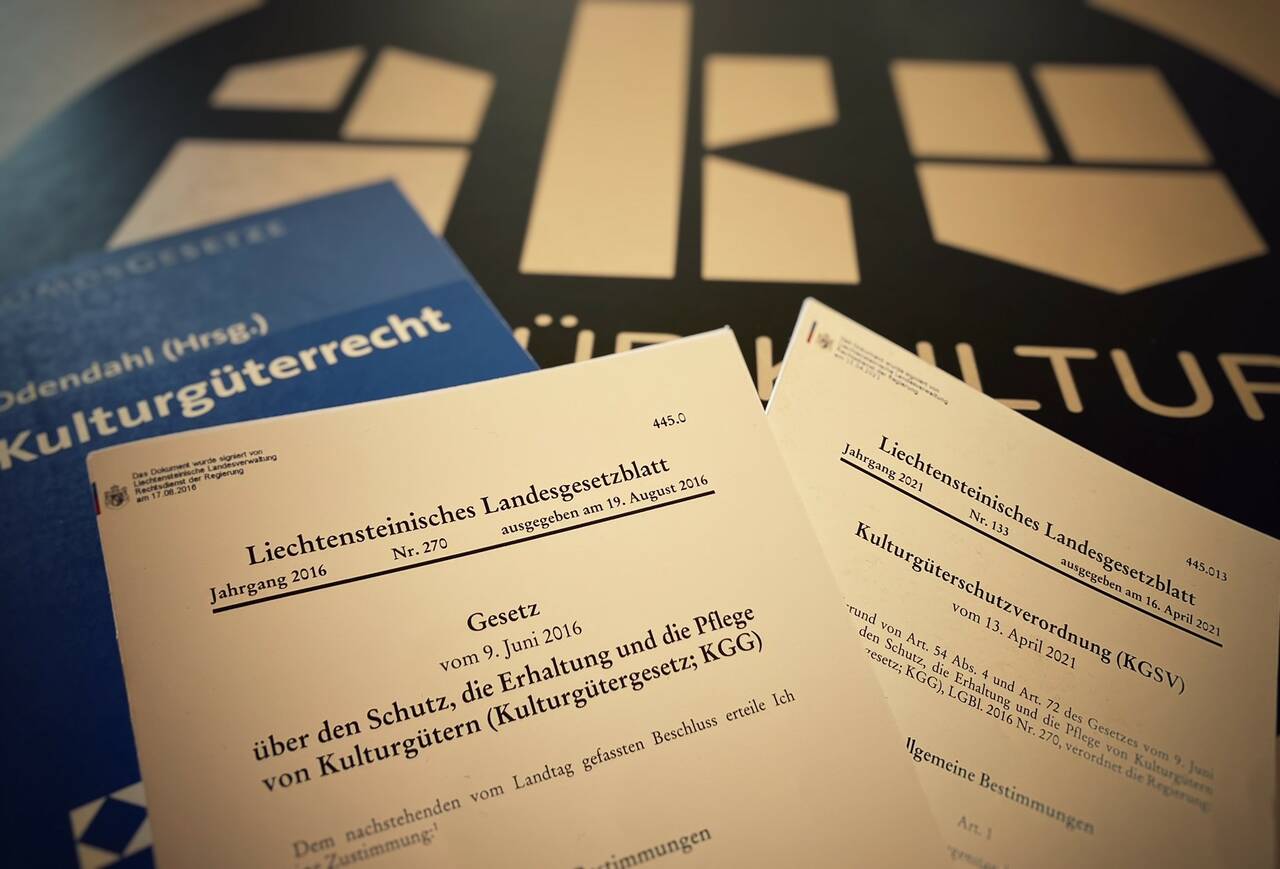Legal bases and conventions
The preservation of historical monuments bases its activities on legal and professional foundations. At the national level, these are the Cultural Property Act from 2016 with the associated Ordinance on the Alignment of Financial Contributions under the Cultural Property Act, the Building Act and Building Ordinance, as well as various planning and building code regulations.
Code of Honor
The Conservation of Historic Monuments in the Principality of Liechtenstein is a member of ICOMOS Suisse and the Conference of Swiss Monument Preservationists. It acts according to the maxims of the 1964 International Charter on the Conservation and Restoration of Monuments and Sites (Venice Charter) and the Guidelines for the Preservation of Monuments of the Federal Commission for the Preservation of Monuments in Switzerland from 2007.
State Policy Task
The state is responsible for cultural heritage. Accordingly, the integral preservation and maintenance of our multi-layered cultural properties and our cultural landscape is one of the most important and urgent tasks of the State. The European conventions ratified by Liechtenstein are important decrees for the integral preservation, conservation, and protection of historical monuments, sites, assemblages, and archaeological sites. They take into account the new scientific research results and technologies. In addition, they place great emphasis on public information and intergovernmental knowledge exchange. The conventions correspond to the policy pursued by the Principality of Liechtenstein in this area. According to the above-mentioned guidelines, Liechtenstein must not only provide for restoration and maintenance measures, but also for scientific inventories and documentation, for the archiving of photographic, plan and other object documents in accordance with the protection of cultural property, as well as for the publication of specialist publications on monument preservation (accountability reports, monographs etc.) and make funds available.
High building culture
The meaning of the term "building culture" goes far beyond its purely architetconical quality and encompasses, in addition to the built environment, all aspects of human activity and all areas of our lives. And thus, building culture is not only a topic for authorities, experts and actors of planning and building processes, but affects the entire society in many ways. Especially with the European Heritage Year proclaimed by the European Union in 2018, the important role of cultural heritage in the history and identity of every country became more present again and triggered further dialogues.
In the 2018 Year of Cultural Heritage, Europe's culture ministers met in Davos at the invitation of Swiss President Alain Berset. In the run-up to the annual meeting of the World Economic Forum (WEF), they adopted the declaration "Davos Declaration 2018 - A high building culture for Europe". This shows ways in which a high building culture can be politically and strategically anchored in Europe and also in Liechtenstein. It reminds us that building is culture and creates space for culture.
Under the title "Common Good as a Shared Responsibility", the second conference of European Ministers of Culture took place at the invitation of Federal Councillor Alain Berset. From 14-16 January 2023, the Ministers of Culture discussed with stakeholders from the private sector how a high level of building culture for Europe can be achieved together.
The 2023 conference addresses the role of the building and real estate industry from the perspective of building culture as a shared responsibility. It identifies opportunities for greater cooperation between public authorities, the public and the building and real estate industry through continuous exchange and networking. The aim of the conference is to launch the Davos Building Culture Alliance 2023, in which partners from all sectors are represented.
Conventions
-
Haager Abkommen zum Schutz von Kulturgut bei bewaffneten Konflikten vom 14. Mai 1954 (LGBl. 1960, Nr. 17)
brick.linklist.external_link.screenreader
-
Zweites Protokoll zum Haager Abkommen von 1954 vom 26. März 1999 (LGBl. 2017, Nr. 58)
brick.linklist.external_link.screenreader
-
Internationale Charta von Venedig über die Erhaltung und Restaurierung von Kunstdenkmälern und Denkmalgebieten von 1964
brick.linklist.external_link.screenreader
-
Übereinkommen zum Schutz des architektonischen Erbes Europas vom 3. Oktober 1985 (Konvention von Granada; LGBl. 1988, Nr. 20)
brick.linklist.external_link.screenreader
-
Europäisches Kulturabkommen vom 19. Dezember 1954 (LGBl. 1979, Nr. 38)
brick.linklist.external_link.screenreader
Laws
-
Kulturgütergesetz (KGG)
brick.linklist.external_link.screenreader
-
Kulturgüter-Beitrags-Verordnung (KGBV)
brick.linklist.external_link.screenreader
-
Kulturgüter-Gebühren-Verordnung (KGGebV)
brick.linklist.external_link.screenreader
-
Baugesetz (BauG)
brick.linklist.external_link.screenreader
-
Bauverordnung (BauV)
brick.linklist.external_link.screenreader
